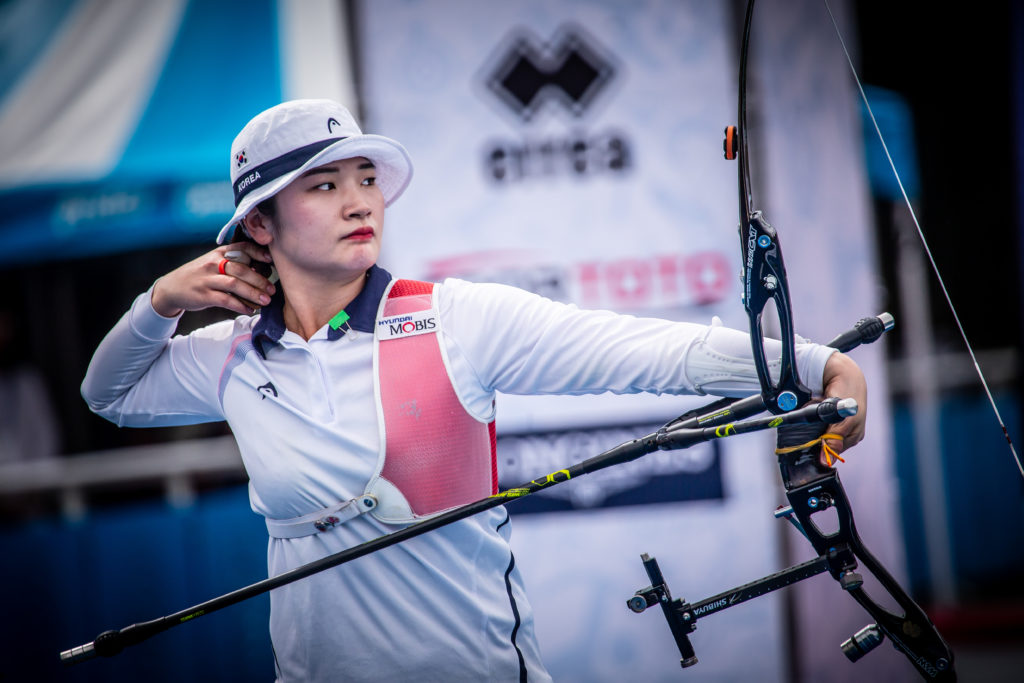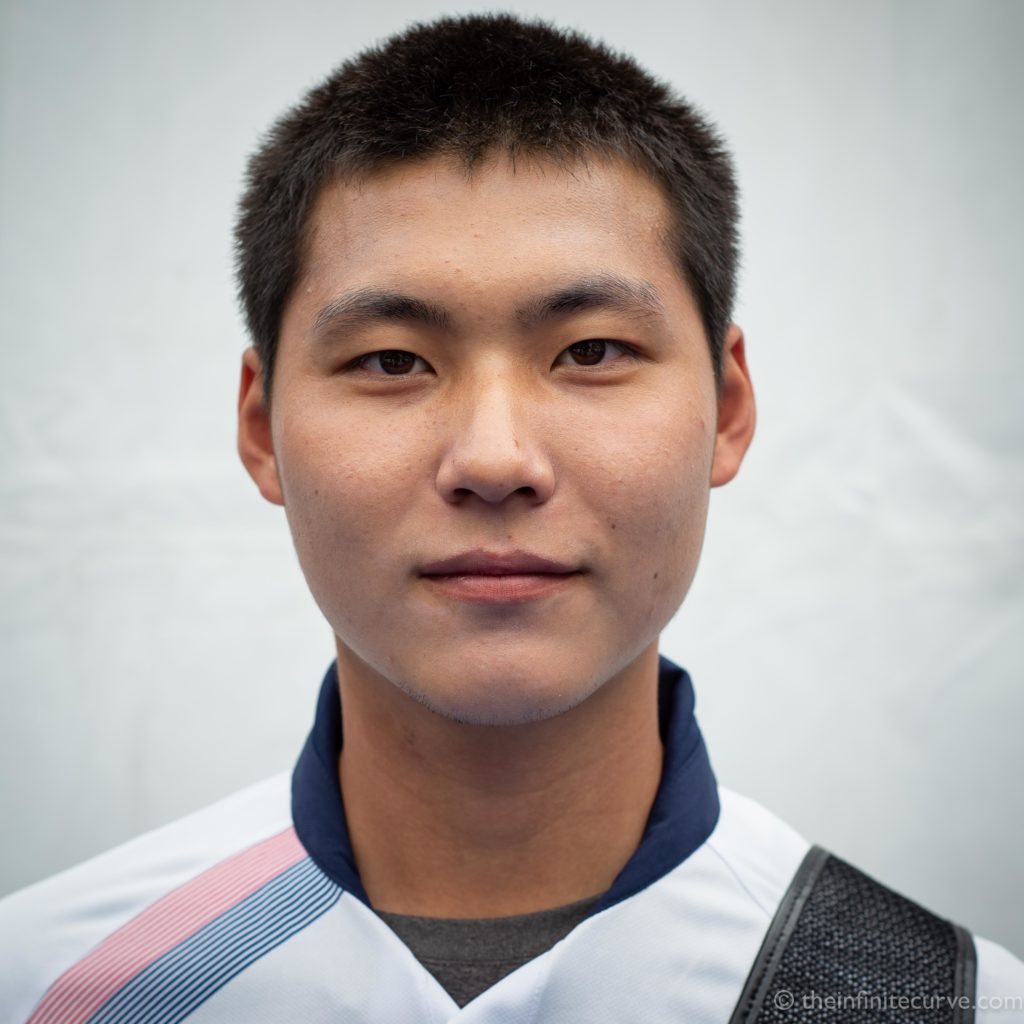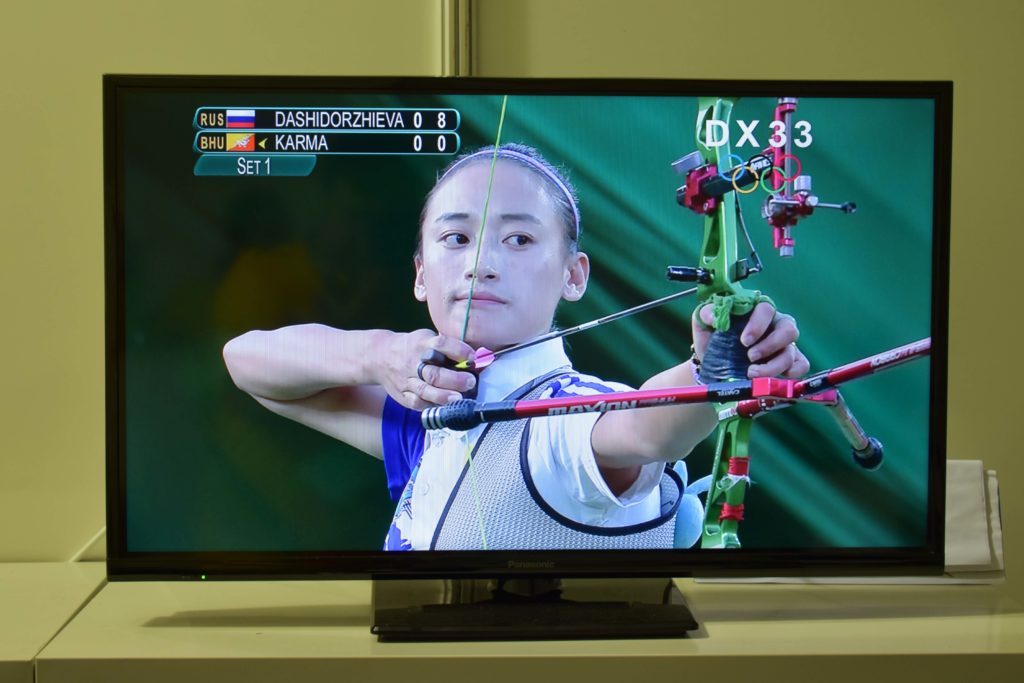
You thought the outdoor season was over? One tournament was left: the Asian Archery Championships. This and its corresponding para tournament, which wrapped up in October, were also qualifiers for Tokyo next year. With many of the highest-ranked archery nations competing, this is one of the tougher outdoor annual tournaments in the world. Of the qualifier tournament, four of the biggest: Korea, China, Chinese Taipei and Japan already had the full six Olympic spots, leaving a bunch of smaller archery nations scrapping for the handful of individual places on offer.
After a topsy turvy year for the Korean national team, with some high profile losses at two of their ‘majors’ – the Asian Games and the World Championships – the stakes were high. Every year, the KAA choose eight men and eight women as the national team. This is further spilt into an A team (top four) and a B team (bottom four). Normally, the A team go out and contest the major events such as the World Cup, with the B team getting the honour of contesting the annual Asian Championships. This time, the powers-that-be took no chances and sent the full-strength A side – although the Korean level of quality being what it is, ‘A’ and ‘B’ are rather relative terms.
In the end, it was a rout. Korea’s recurves and compounds stormed to every final and won the lot – frequently against themselves. In the individual men’s final, archery nerds were treated to yet another battle royale between Kim Woojin and Lee Woo Seok, who have given us some of the best and the worst matches on the world stage in the last couple of years. The record was three-two in favour of Woo Seok, and he added another to the list, winning 6-4 and closing with a perfect end of 30.

He has now beaten his teammate Woojin – frequently described as ‘the best archer in the world’ – three times in international competition this year. (Interestingly, Woo Seok has lost to former Olympic Champion Marco Galiazzo not once, but twice this year – in the third round of the World Championships and in the final of the World Military Games in China).
On the women’s side, Kang Chae Young has dominated the year – smashing her own world record, winning two stages of the World Cup and the World Cup final seemingly at a canter, but losing the World Championship to a surging Lei Chien-Ying of Chinese Taipei.
This time around, Kang got a measure of revenge, thumping Lei 7-1 in the quarterfinals and going on to face Zheng Yichai, the young Chinese winner of the Antalya stage this year. Both were in the pocket, but Kang’s metronomic consistency at 70m, producing ends of 27, 28, 29, 29 and 29 were enough to bring her her fourth major title of the year. With characteristic reserve, she said afterwards: “I think this has been the best year in my archery career, but at the same time I feel there is something that needs to be improved still.” It’s difficult to see what she could improve right now, although the threats from China and Chinese Taipei are not going away anytime soon.
The team matches were a similar story, with an efficient, on-point Korean recurve machine steamrollering all opposition. In compound, India – forced to compete under a World Archery flag, with the ongoing suspension of their governing body – made three team finals, but could not get past Korea in two of them, although they managed to take a precious mixed team compound victory against a lacklustre Taipei to go with a bunch of bronze medals. The win will be a big psychological boost for the beleaguered Indian delegation.
The next day saw the crucial qualifier competition, with over a dozen nations including Qatar, Iraq, Tajikistan and Yemen alongside the bigger teams all fighting it out for six precious individual spots for Tokyo.
All eyes were on Deepika Kumari, seeded first, and the other Indian women, who had failed to take the crucial victory in Den Bosch that would have seen them with tickets to Tokyo. Expectations were high, to put it mildly.

In the end, both Kumari and her teammate Ankita Bhakat easily made the business end of the tournament, placing first and second – although a single semi-final place would have been enough to secure the precious single Olympic women’s spot available. Nguyet Do Thi Anh from Vietnam placed third, with two of her male teammates duking it out for gold and silver, giving Vietnam a men’s and women’s spot. Iran and Mongolia also took a men’s spot. The final women’s spot went to the mononymously-named Karma from Bhutan, who was one of just two athletes from her country to attend the Rio Games, winning a shootoff in high winds to become the first athlete to qualify from Bhutan in any sport.
For now, it was business as usual for the big Asian nations in Bangkok. Next year: who knows?

